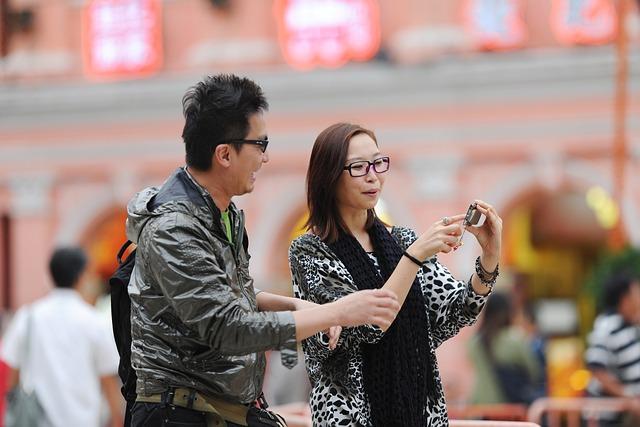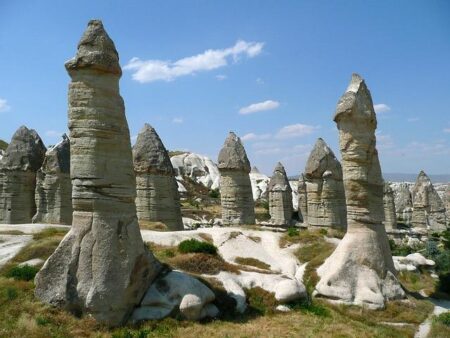Former President Joseph Kabila of the Democratic Republic of Congo has announced his intention to return to the country amid increasing political tension and speculation surrounding the future of Congolese leadership. Kabila, who has been living outside the country since his controversial departure from office in 2019, made the statement during a recent interview with Reuters. His return could potentially reshape the political landscape in a nation still grappling with the ramifications of his nearly 18-year presidency. As the country approaches crucial electoral periods, Kabila’s move raises questions about his influence, the reaction of current leadership, and the broader implications for Congolese democracy.
Former President Kabila’s Planned Return Sparks Political Uncertainty in Congo
As speculation surrounding former President Joseph Kabila’s anticipated return to the Democratic Republic of the Congo intensifies, numerous questions linger about the implications for the nation’s political landscape. Kabila, in power from 2001 until 2019, remains an influential figure within the Congolese political arena. His announcement has prompted both supporters and critics to weigh in, igniting fervent discussions about potential power shifts, the future of the ruling coalition, and the overall stability of the country’s governance. Analysts suggest that Kabila’s resurgence could lead to various scenarios, including:
- Renewed Political Alliances: His return may facilitate new alliances, impacting current party dynamics.
- Security Concerns: An increase in political tension could lead to unrest and violence, particularly among opposition groups.
- Foreign Relations: Kabila’s return might alter Congo’s diplomatic relationships, especially regarding international investments and aid.
The electoral framework in the DRC adds another layer of complexity to this situation. Kabila’s actions could significantly influence upcoming elections, particularly if he chooses to support or endorse candidates that align with his political agenda. Political analysts are closely monitoring reactions from his opponents, who may mobilize their bases in response to his return. The consequences could be far-reaching, leading to:
| Potential Outcomes | Implications |
|---|---|
| Strengthened Opposition | Heightened mobilization to counter Kabila’s influence. |
| Fragmentation of Support | Possibility of division among loyalists over new leadership. |
| International Scrutiny | Increased focus from global powers on Congo’s political landscape. |
Implications of Kabila’s Resurgence for Democratic Processes in the DRC
The announcement of former President Joseph Kabila’s intention to return to the Democratic Republic of the Congo has ignited significant debate regarding the future of democratic governance in the country. As Kabila re-enters the political arena, his influence is likely to reshape party alliances and voter sentiments in a nation that has grappled with political instability and governance challenges since his departure. His return poses questions about political polarization, the legitimacy of upcoming elections, and the potential for renewed conflict among rival factions.
Key implications for the democratic processes include:
- The Risk of Increased Authoritarianism: Kabila’s history of consolidating power raises concerns about the erosion of democratic institutions.
- Polarized Electoral Landscape: His presence may exacerbate division among political groups, potentially affecting voter turnout and engagement.
- Impacts on Civil Society: Kabila’s resurgence could lead to intensified repression of dissent and free speech, stifling grassroots movements.
| Potential Outcomes | Impact on Democracy |
|---|---|
| Increased Political Tension | May undermine electoral integrity and transparency |
| Fragmentation of Opposition | Weakens collective action against authoritarian practices |
| International Response | Could influence foreign aid and investment policies |
Strategic Recommendations for Political Stability as Kabila Sets Foot Back in Congo
The impending return of former President Joseph Kabila to the Democratic Republic of the Congo presents both challenges and opportunities for the nation’s political landscape. To ensure a smooth transition and foster an environment of political stability, several strategic recommendations should be considered. Firstly, open dialogue between Kabila and current political leaders is essential to address potential tensions. Engaging in transparent discussions can help to build trust and mitigate fears among various factions within the political arena. Furthermore, reinforcing democratic institutions should be prioritized to ensure fair representation and governance, which will be crucial for appeasing domestic and international stakeholders alike.
In addition to dialogue and institutional reinforcement, community engagement must play a pivotal role in the reintegration process. Encouraging grassroots initiatives can empower citizens and build a sense of ownership over their democratic processes. This grassroots approach can be supported through:
- Local forums aimed at discussing regional issues and solutions.
- Collaboration with non-governmental organizations to promote civic education.
- Stimulating economic development projects to create job opportunities and reduce unrest.
By fostering an inclusive political climate and actively involving the populace in vital discussions, the pathway to stability can be more effectively navigated as Kabila embarks on his return to Congo.
In Retrospect
In conclusion, the announcement of former President Joseph Kabila’s intention to return to the Democratic Republic of Congo has sparked a flurry of speculation regarding the future political landscape of the nation. As Kabila prepares for his re-entry into the Congolese political arena, analysts are closely monitoring the implications of his return amid ongoing concerns about governance, security, and civil liberties in the region. With the upcoming elections looming, this development could significantly influence the dynamics of political power in Congo. As the story unfolds, it is essential for stakeholders, both domestically and internationally, to remain vigilant and engaged, ensuring that the needs and aspirations of the Congolese people are prioritized in any future political discourse.







